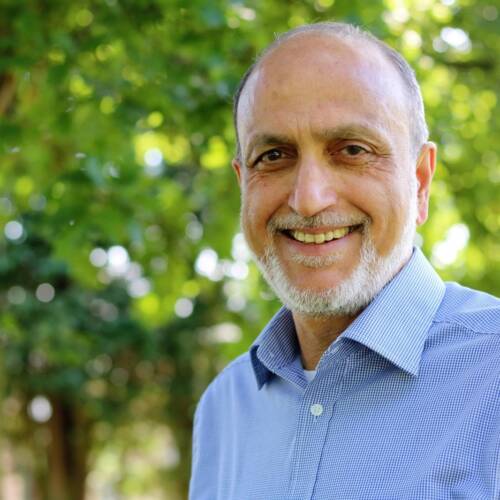
10 Important Lessons From Jesus for Humankind
24 Dec 201910. Love each other
‘Then one of the scholars, who had been listening to these discussions and had observed how well Jesus answered, came forward and asked him, ‘Which is the first of all the commandments?’ Jesus answered, ‘The first is, “Hear, O Israel: the Lord our God is the one Lord, and you must love the Lord your God with all your heart, with all your soul, with all your mind and all your strength.” The second is this: “You must love your neighbour as yourself.”‘ (Mark 12.28-31)
Jesus says that loving your neighbour is at the heart of what it means to be human being created by God. We are all connected to each other as fellow human beings and as neighbours living alongside each other. Loving and caring for each other is normal and for those who aspire to follow God, taking Jesus as an example, it is central to the life of faith, and faith is only any good if it is lived. He underlines it, or roots it, in love of ourselves. We must be centred in ourselves and love and care for ourselves if we are to be able to love anyone else.
9. Don’t be sectarian and divisive
Jesus said, ‘No one who performs a miracle [or a good deed] in my name will be able to speak evil of me. He who is not against us is on our side.’ (Mark 9.39-40)
Human beings have a tendency to be divisive, to feel superior, to say, ‘I am right, you are wrong’. Jesus encourages us to think differently. He says, in effect, that we should be looking for allies, not enemies. We may have very different outlooks on some issues but be united with others, as we campaign against climate change we may find ourselves working together with atheists and people of other faiths and Jesus tells us that these people are on our side. Once we learn this lesson our whole outlook changes and whereas people previously saw us as standoffish they will appreciate us and see Jesus in us.
8. Be of service to others
Jesus said, ‘Whoever wants to be great must be your servant, and whoever wants to be first must be the slave of all.‘ (Mark 10.43-44)
So many of the things that Jesus said seem upside-down, but in reality many of the things that we see in normal life are the wrong way up. For example, those who are domineering and ridicule others do not deserve to lead, though they may be very popular because they portray themselves as strong and decisive. Jesus says, in effect, forget all that, be kind and caring, consider others. You may one day find that your good qualities end up with you being in an important position because of how you have treated people, it’s better to be invited to lead than to force yourself into positions of leadership.
7. Don’t worry about today
Jesus said, ‘Don’t be anxious about food and drink to keep you alive and about clothes to cover your body. Surely life is more than food, the body more than clothes. Look at the birds in the sky; they do not sow and reap and store in barns, yet your heavenly father feeds them. Are you not worth more than the birds?‘ (Matthew 6.25-26)
Jesus was not talking to the poorest members of society, those who are without food and drink and have scarcely any clothes to wear. Though it is worth noting that some people in society have so little, perhaps even nothing, because others have so much. He wasn’t really addressing the rich but, in our time, there are those on large salaries, with a comfortable lifestyle who say that they cannot afford to pay a few more pounds in tax. In short, Jesus is saying be grateful for what you have, recognise that it all comes from God ultimately and trust that God cares for you both today and tomorrow. This fits with his other teaching about sharing what we have and working for social justice in society.
6. Where does your treasure lie?
As Jesus looked at him, his heart warmed to him. ‘One thing you lack,’ he said. ‘Go, sell everything you have, and give to the poor, and you will have treasure in heaven; then come and follow me.’ At these words his face fell and he went away with a heavy heart; for he was a man of great wealth.’ (Mark 10.21-22)
Jesus asks what do we value, is it our possessions or is it other people? What is our direction and purpose. This isn’t necessarily a religious question and we know that there are some very generous people who say they don’t believe in God and some very mean people who say that they do. It is all about the heart, the quoted passage mentions two hearts – Jesus’ warm heart as he appreciates the man’s urgent questioning about how to achieve eternal life and the man’s heavy heart when he realises that he is not in tune with Jesus’ sharing attitude. It’s an age-old question – what is in our heart, is it caring for other people or for money? Money doesn’t care for anybody.
5. Be charitable in private
‘But when you give alms, do not let your left hand know what your right is doing; your good deed must be secret, and your Father who sees what is done in secret will reward you.’ (Matthew 6.3-4)
This is one of Jesus’ teachings that still captures the imagination today outside religious circles, people talk about ‘anonymous acts of kindness’ (like leaving a pound in the shopping trolley for the next shopper). Making a big noise about our charitable giving turns it into a transaction or a media opportunity instead of an act of kindness. If we really are motivated by love and concern for our neighbour then we neither need nor want any publicity to go with it. If we seek publicity then maybe that was all we wanted in the first place and the recipient was of no importance to us. Real kindness doesn’t boast about it.
4. Spend time alone
Then Jesus went up the hill by himself to pray. It had grown late and he was there alone. (Matthew 14.23)
People talk about ‘me time’, or ‘connecting with myself’. This is one of the most important features of religion which is still visible in today’s world. Prayer is an intensely connecting experience, with God and ourselves, or it can be, if we are not distracted. Smart phones and the internet have made us hyperconnected but we lose the connection to ourselves, and so we need to spend time with ourselves. Like love, if we can’t connect to ourselves we can’t connect to God or other people, even Jesus needed this time on his own.
3. Be non-judgmental
‘A good tree always yields sound fruit, and a poor tree bad fruit. A good tree cannot bear bad fruit, or a poor tree sound fruit … You will recognise them by their fruit.’ (Matthew 7.17-18, 20)
In case you were wondering the tree in Jesus’ illustration represents a person and a the fruit their deeds and qualities, how they behave. Like many of his sayings it can be challenging, if we see someone who doesn’t believe in God doing good things then it means that they are a good person and if a believer is producing ‘bad fruit’ then they are not motivated by what is good. Jesus doesn’t ask us to judge, he asks us to appreciate and recognise that how people act is how they are, their deeds reveal their hearts.
2. Forgive readily, for it is divine
‘And when you stand praying, if you have a grievance against anyone, forgive them, so that your Father in heaven may forgive you the wrongs you have done.’ (Mark 11.25)
The best thing about praying is not answers to prayer requests but the transforming effect it can have on us. When we pray, or even if we are just being quiet on our own, as we connect to God and ourselves we consider the impact we have had on others and others have had on us. It can be very difficult, maybe even impossible, and it should not be forced, but forgiving someone who has harmed us can enable us to move on, removing the harm of memories of resentment and anger. As with love and charity, everything is connected, if we can forgive then we can experience God’s forgiveness, a forgiveness that may come through other people.
1. The Golden Rule
‘Treat others as you would like them to treat you.‘ (Luke 6.31)
This is one of Jesus’ most famous sayings, but it is also the ancient wisdom of prophets and spiritual teachers in all other religions. It goes alongside ‘love your neighbour as yourself’. It is also his most humanistic saying, it does not require any religion but it is based on awareness, and with awareness may come connection to the Divine. It is so simple but also simple to forget or ignore as we get engrossed in ourselves and in what we want. Yet we are so connected that if we have a concern for the wellbeing of others then it creates and nurtures our own wellbeing. It highlights the problem, of seeking to win, as we see in politics, or of the urge to conquer. We can only really win if others win.















